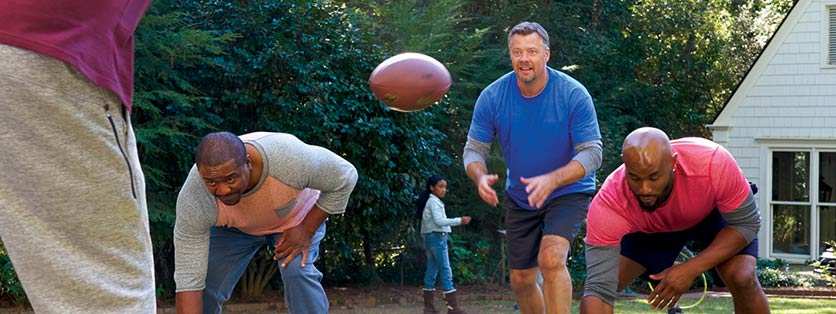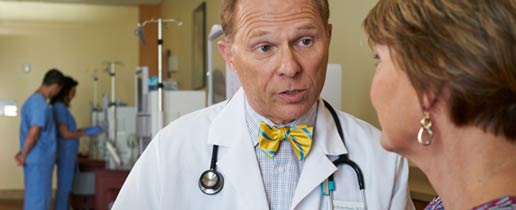
What is Acute Kidney Injury (AKI)?
What causes AKI?
Decreased blood flow
Decreased blood flow to your kidneys can be caused by common diseases or health conditions, such as:
- Low blood pressure or shock
- Severe blood loss or fluid loss
- Heart attack, heart failure, or heart disease
- Major organ failure
- Overuse of certain pain medications called NSAIDS (e.g., ibuprofen, naproxen, ketoprofen)
- Anaphylactic shock (a severe allergic reaction), direct kidney damage, or kidney trauma
Direct kidney damage or kidney trauma
Some types of injury, diseases, or conditions can damage your kidneys and lead to AKI, including:
- Physical injury
- Sepsis—a life-threatening infection
- Vasculitis—a rare blood vessel condition
- Allergic reactions to certain drugs
- Illegal drugs or some prescription medications
- Diseases of connective tissue called scleroderma
- Inflammation or damage to blood vessels in the kidneys
Urinary tract blockage
Some conditions or diseases can prevent urine from leaving your body and lead to AKI, such as:
- Kidney stones
- Blood clots in the urinary tract
- Cancers of the bladder, cervix, or prostate

What are common symptoms of AKI?
Noticeable symptoms may include:
- A decrease in urine
- Swelling in your legs, ankles, or feet
- Fatigue
- Shortness of breath
- Confusion
- Nausea
- Pain or pressure in your chest
- In extreme cases, seizures or a coma
What’s the difference between AKI and CKD?
Acute kidney Injury
- Happens quickly—over hours or days
- Requires immediate attention to the injury or illness and the AKI resulting from that injury or illness
- Treatable and may be reversible when found and treated quickly
- May lead to end stage renal disease (ESRD) if not reversed, which is treatable with a transplant or dialysis
VS.
Chronic kidney disease
- Can progress through 5 stages of chronic kidney disease over time
- Considered a long-term condition
- Treatable to slow progression, though has no cure
- May lead to end stage renal disease (ESRD), which is treatable with a transplant or dialysis
What should I expect after diagnosis with AKI?
In some cases, acute kidney injury is reversible. Treatment for AKI or AKF usually starts with treating the root cause of the kidney injury. It’s important to make your health a priority during this time. If you are diagnosed with AKI or AKF, be sure to follow all medical instructions exactly as your doctor directs.
After diagnosis, your doctor may decide:
You need dialysis for a little while—to help your body remove toxins, waste, and excess fluid from your blood.
Some medications may be harmful for people with AKI or AKF—especially if you have diabetes or high blood pressure. Talk to your doctor about what to avoid or adjust.
Monitoring your health with AKI
Track these health factors daily and report them to your care team:
- Urine output—If you notice any change in the amount of urine you’re making, tell your care team. Make note of how many times you urinate throughout the day and the amount, so you can compare your urine output from day to day.
- Weight—Weigh yourself daily and report to your care team. For accuracy, weigh yourself every day at the same time, wearing similar clothes and shoes.
- Blood pressure—Take and record your blood pressure each day, then share your results with your care team.
- New symptoms—Report any new symptoms you experience, such as: fatigue, shortness of breath, dizziness, swelling, or changes in appetite or mood.
- Medications—Tell your care team immediately if any of your doctors prescribe new medication, change your dose for an existing medication, or schedule a procedure that requires using a contrast dye (like a CT or MRI scan).
